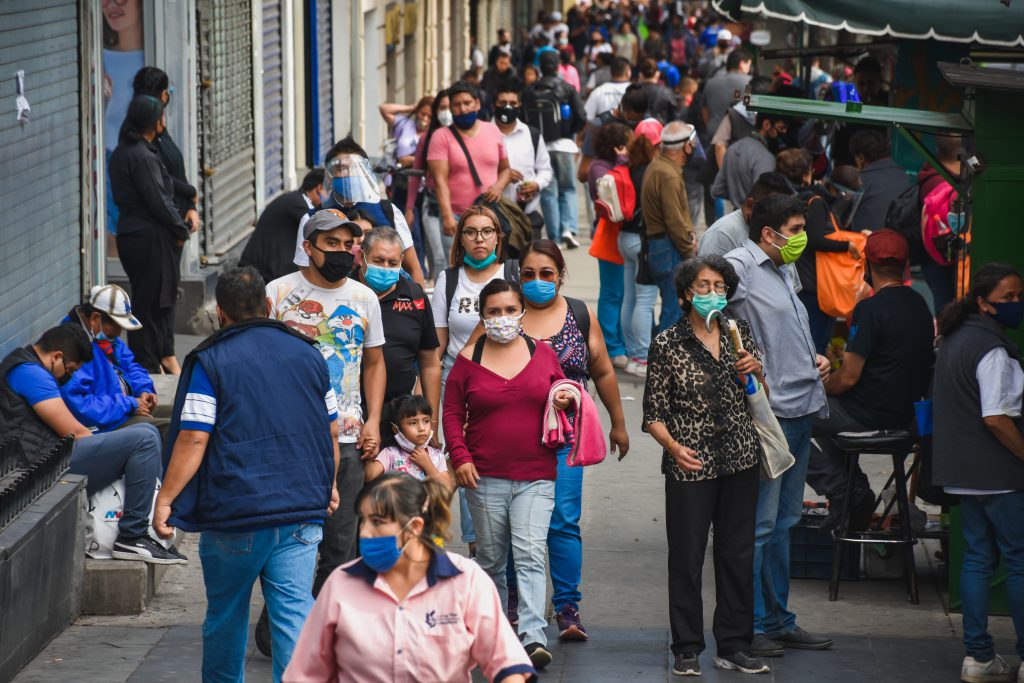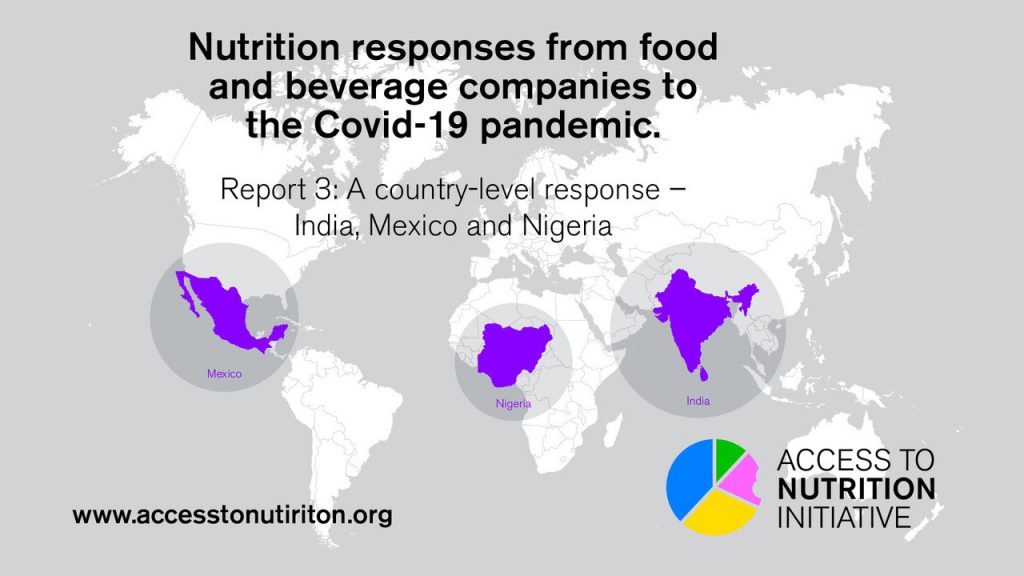
Third ATNi Covid-19 report highlights corporate responses to the pandemic in India, Mexico and Nigeria
10 February 2021Over a year since the onset of the Covid-19 pandemic, on February 10th, ATNI publishes the third report of its Covid-19 project.
Covid-19 Third Quarterly Report
At the time this report was finalized, in late January 2021, over 94 million people had been diagnosed with Covid-19 and tragically over 2 million had died from the virus globally. Despite the beginning of vaccination rollout programs, these numbers keep rising – for the world’s majority, immunity to the virus does not seem to be within reach yet.
As pandemic management measures become the new normal and the long-term socio-economic impacts of Covid-19 continue to unfold, the magnitude of the virus’s repercussions for food systems and nutrition becomes increasingly clear and progressively severe. A December 2020 discussion paper by the International Food Policy Research Institute estimates that nearly 150 million people will fall into extreme poverty and food insecurity as a result of the pandemic.
When ATNI’s research on Covid-19 and nutrition began in April 2020, it was hard to predict what role the food industry could play in addressing nutrition challenges brought about by the pandemic. The Framework report published by ATNI in July 2020 presented a framework to assess companies’ nutrition responses to Covid-19, with examples of early actions taken between April and June 2020. Report 2: An acute response evaluated actions taken by 39 of the largest food and beverage companies in the world to address risks and challenges presented by Covid-19, highlighting industry best practices as well as revealing instances of inaction.
In the second report ATNI identified trends in the food industry response to the Covid-19 crisis – such as the prevalence of donations and programs to ensure employee wellbeing – which are broadly reflected in this in-country study. This third report in ATNI’s FCDO-commissioned project looks at the Covid-19 and nutrition nexus in India Mexico, and Nigeria, emphasising how different political, cultural, and socio-economic contexts have shaped Covid-19 impacts and resulted in disparate corporate (and governmental) actions – thus helping to draw a much more nuanced picture of the responses to Covid-19.

The countries analysed in the report were selected to cover three distinct regions – Asia, Africa and South America – as well as to reflect previous and ongoing work by ATNI, such as the ATNI India Spotlight Indexes, work done in Nigeria to test the Nutrition Business Monitor tool for SMEs and the Spotlight methodology piloting, product profiling and BMS in-country assessments conducted in Mexico – which enabled the analysts to draw on existing research and contacts.
Research for this report is based upon the ATNI Framework ,as published in the first report, and consisted of desk research supplemented by a series of in-country semi-structured interviews with local stakeholders ranging from government officials to nutrition professionals working for NGOs and/or UN agencies to industry experts. These provided invaluable on-the-ground context. The research focused not only on mapping the Covid-19 nutrition nexus in the local contexts, but also specifically looked at publicly disclosed information by the largest food and beverage manufacturers in each country.
Desk research revealed that reporting by food industry on in-country efforts is less detailed than at the global level: some companies had no mention of Covid-19 on their website and even for relatively more reported-on actions, information was scarce.
Similar to findings from ATNI’s assessment of 39 food and beverage manufacturers’ publicly disclosed Covid-19 responses, the most widely reported on areas of corporate action are employee wellbeing and donations. Companies in India, Mexico, and Nigeria alike have worked to ensure the safety of their workforce, mostly through measures adopted to guarantee hygiene in the workplace or through financial support, and have made food as well as in-kind donations to support vulnerable populations. Industry actions in these areas could be enhanced by highlighting the importance of good nutrition as supporting employee health, and by transparently disclosing the healthiness of products donated. In line with findings from previous research, there is little evidence of a strategic approach in their responses to the pandemic.
Differences between in-country responses are attributed to different socio-economic contexts, to the magnitude of Covid-19 impacts, and to underlying nutrition challenges.
Research for this report found that food security and nutrition indices in the three countries are deteriorating, with especially worrying consequences for maternal and child health. In all countries, a shift towards foods with lower nutritional value and longer shelf-life was recognized.
India
- With a dedicated government department, the food industry is pivoting towards the production of Ayurvedic products, promoted as boosting immunity;
- The government’s economic relief package included a significant food component;
- The Food Safety and Standards Authority of India ensured food fortification continued undisrupted, and producers of pre-mixes absorbed higher production costs.
- Many in the industry came together to support small retailers, but there has also been pushback by some companies against the introduction of the new, striking front-of-pack labeling scheme that has been strongly supported by public health advocates;
- Through partnerships with local and national NGOs and UN agencies, several nutrition campaigns and food programs have been implemented by the government.
Nigeria
- The food industry took a leading role in a public-private partnership to distribute food and other essential goods, organized by the government, which has faced criticism for the slow pace of distribution;
- At the early stages of the pandemic, the government produced The Nigeria Food and Nutrition Response Plan for the Covid-19 Pandemic, but no further evidence of implementation or execution phase of the plan was found.

ATNI believes the private sector can play a crucial role in scaling up nutrition responses to Covid-19. To inspire corporate action, ATNI will publish a fourth and last report in this series in April-May 2021, providing recommendations and examples of industry best-practices arising from a year-long research.
Visit the Covid-19 project page for more information on ATNI’s research on Covid-19 and nutrition.
Follow our Covid-19 project hashtags on Twitter: #ATNICovid19Framework, #ATNICovid19Report

